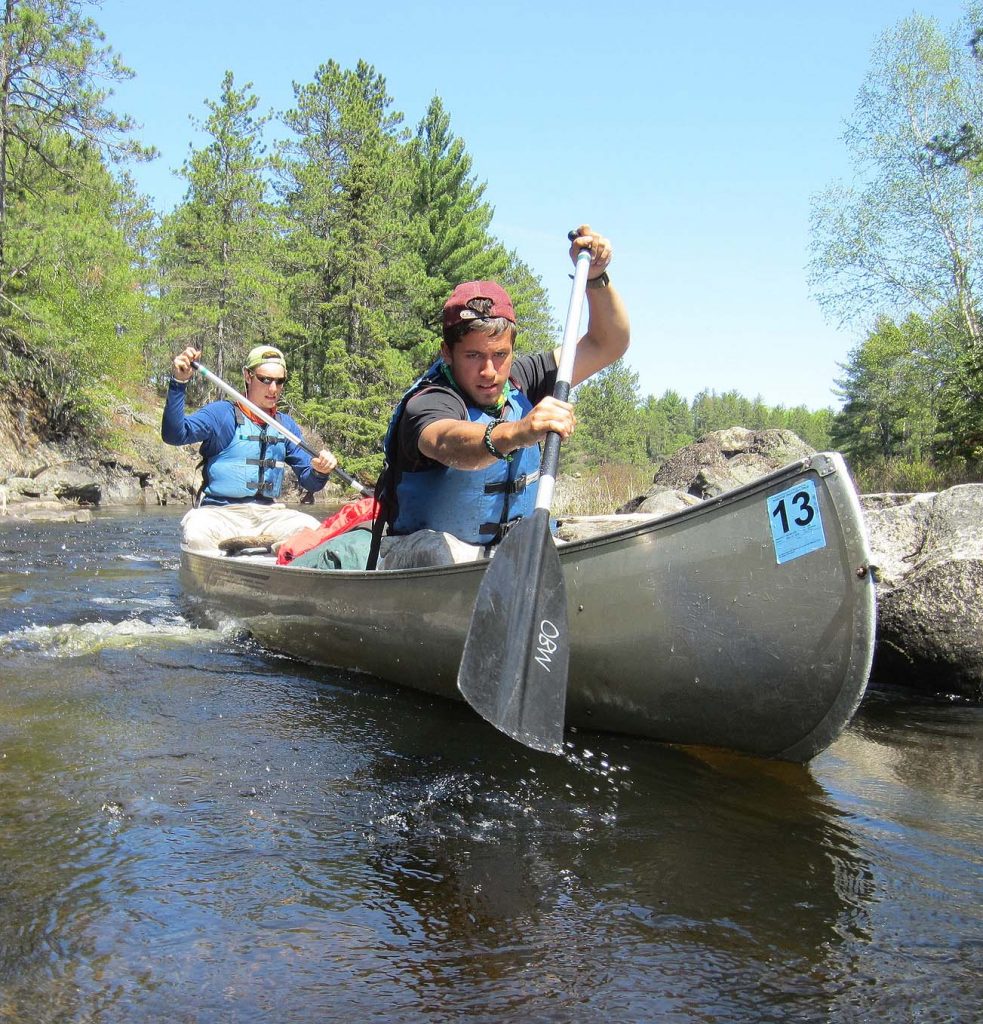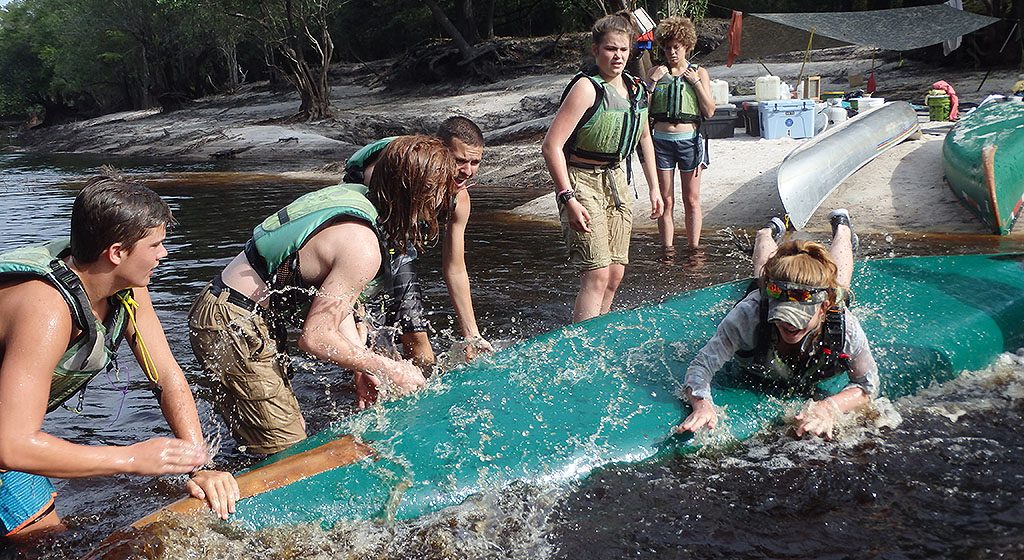I tell my Intercept students that “A ship is safe in the harbor, but that’s not what ships are built for.” I often compare their life at home to the harbor, and their adventure on their Outward Bound expedition as the open sea. The power of the metaphor is in the flip, at the trip’s end, when Outward Bound is the harbor. After several weeks together, Outward Bound becomes the new normal for Intercept students, and the world post-expedition seems intimidating. The open sea of how to carry success and the will to change past the expedition, outside of a small, carefully-managed group of people, can be a challenge.
As graduates of the Intercept program, your family now faces the open sea. From the viewpoint of an Intercept Instructor, here are my tips for navigating the sometimes-stormy waters of the ocean.
1. Celebrate Success

Photo by Theo Theobald
Help your teen tell their story of their Intercept course to everyone in their life. Highlight whatever it was that they excelled at, whether it was reading maps, encouraging a peer who was struggling or choosing to be open to a new and difficult experience. Short of graduating high school or winning a tournament, teens rarely have the opportunity to brag about such an accomplishment as having traveled dozens of miles through the wilderness for multiple weeks. Validate the work they did and help keep the memories of success alive.
2. Borrow a Communication Habit
Find something that worked for your teen during their expedition or for your family during the final conference, and choose to incorporate it into your home routines. It may be a process for giving feedback, delivering gratitude or managing frustration and anger. In the wilderness, we set up our tents well every single day because we don’t know which days will bring rain. Strive as a family for that level of excellence, practicing communication even when the sun is shining.
3. Set Goals as a Family and Set Times to Check in on Them
While being away from peers and social media during an expedition allows for priorities to become clear, like improving self-confidence, building empathy and communicating respectfully, keeping these priorities will take more careful structuring at home. Maybe it’s weekly, monthly or seasonally, but set regular times with your teen to revisit the conversations you began during the family conference.
4. Make It Tangible
Some teens thrive with the tangible, immediate consequences of life, both positive and negative, in the wilderness. Hard work pays off with time to relax in camp, while sleeping too late means fighting a headwind all day. Help your teen brainstorm some tangible and more immediate consequences for their choices. One student of mine took home a bracelet with beads that we used on the expedition to track their progress toward a goal. The family set a new goal and defined the steps to reach it, each represented by a bead. When all of the beads passed the knot, the goal was reached, and the teen chose a trip to their favorite restaurant as a reward.
5. Take Breaks

One of the best things for a team is working towards a common goal is to take a break, stop working, and have a little fun together. If you find yourselves caught in the grind, backsliding, feeling predictable—take a break together, not as a reward, just as a much-needed mental break.
6. Build Support

Help your teen connect both to family support and professionals as needed. Encourage relatives and mentors to invest in your teen by spending quality one-on-one time with them. There is a myth that teenagers don’t like to talk. While it’s certainly true that they may be pushing back against their immediate family, everyone needs to talk. Continue to find opportunities for your teen to share and connect with other caring adults.
No matter what happens, no one can take away what your family gained from your Intercept expedition. Hit the reset button when needed, and use Intercept as your foundation for the kind of work your family is capable of!
About the Author
Renee Igo was an Outward Bound student at age 15, and has been instructing wilderness expeditions for the Voyageur Outward Bound School for the past eight years. When not instructing, she holds a variety of other teaching positions and raises sheep in Maine.
OTHER POSTS YOU MAY LIKE
Read More
Read More
Read More




